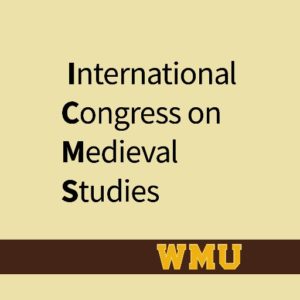 55th International Congress on Medieval Studies.
55th International Congress on Medieval Studies.
Western Michigan University
Kalamazoo, Michigan
May 7-10, 2020
Special Session: Nineteenth-/Twentieth-/Twenty-First-Century Medievalisms
Organizers: Robert Sirabian, UW-Stevens Point; Daniel C. Najork, Arizona State University
Presider: Daniel C. Najork
For this session, we seek proposals exploring the factors shaping nineteenth- and twentieth-/twenty-first-century literature (in its broad sense) about the Middle Ages as well as the differences in approaches to the Middle Ages in each century. What historical, social, and intellectual views shaped nineteenth-century approaches to the Middle Ages? In what ways were these views limited or biased based on what the Victorians knew and believed and did not know, particularly when compared to advances in historical, psychological, and political knowledge in the next centuries? Conversely, what shaped twentieth-/twenty-first-century views of the Middle Ages? To what degree did writers react to and against the nineteenth century as well as utilize new knowledge available to them? At issue here is the debated distinction between medieval studies and medievalism. Medievalism, Pam Clements argues, “is in one sense the study of necessarily inauthentic ‘medieval’ matter [because of historical distance], filtered through a variety of eras, cultures, zeitgeists” (“Authenticity,” Medievalism: Key Critical Terms 20).
A paper, for example, focusing on a nineteenth-century literary work might examine how nineteenth-century thinking and knowledge shaped as well as limited that work when considering what was known and available in the twentieth-/twenty-first century. Papers might also address how scholars of the twentieth-/twenty-first centuries have confronted the lasting consequences of nineteenth-century medievalism.
Please send a 500-word abstract and the Participant Information Form (https://wmich.edu/medievalcongress/submissions) to Robert.Sirabian@uwsp.edu and Daniel.Najork@asu.edu by September 15th.